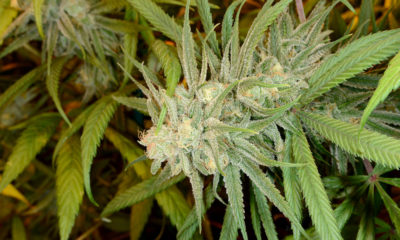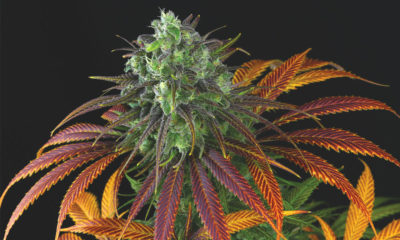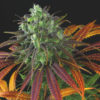
CBD
Can CBD Combat Alcohol & Drug Addiction? Maybe.
Researchers found evidence that CBD could curb cravings in substance-abuse sufferers — but don’t forget about THC.
By now, cannabis’s value as a pain reliever is almost universally accepted.
Even those of us whose plans for personal and professional development are to become an eleventh-hour legalization contrarian must admit that marijuana is good for pain. Declaring otherwise would be to contradict both the National Academies of Science, Engineering and Medicine and findings published in the Journal of American Medicine.
But whether cannabis can solve the country’s opiate-overdose crisis — a function of both pain and the much thornier concept of “addiction” — is an entirely different question.
It remains true that that marijuana may be an acceptable, if not preferable, substitute for opiate-based painkillers when it comes to pain relief. In fact, that finding is increasingly en vogue among states adding pain and/or opiate prescriptions to its list of conditions qualifying users for legal medical marijuana.
But what if marijuana could treat not just pain, but addiction? According to an article recently published in the journal Frontiers in Psychiatry, there is a chance that the increasingly popular and common marijuana compound cannabidiol, or CBD, might have value in treating substance-use disorder — including opiate addiction.
New Pathways to Recovery
For more than a year, CBD has been widely available in the United States. CBD is non-intoxicating, has proven medical benefits and can also be found in cannabis sativa plants that qualify as “hemp” under U.S. drug laws. This means it’s legal in all 50 states, though how legal depends on which state and which law-enforcement jurisdiction is in question.
Like its outlaw cousin THC, CBD present in the human body and brain activates receptors in the endocannabinoid system, which regulates key functions like mood, appetite and sleep. But it also activates the receptors associated with reward and motivation, the same releases of chemicals sought after by individuals with substance-use disorder.
And, as these researchers in Australia recently pointed out, there are signs that CBD could reduce cravings in substance users, thus reducing the likelihood that the user would relapse.
“Animal and human studies suggest that these cannabinoids have the potential to reduce craving and relapse in abstinent substance users, by impairing reconsolidation of drug-reward memory, salience of drug cues, and inhibiting the reward-facilitating effect of drugs,” according to the researchers, who were quick to note that they’re not entirely sure how this works.
“Such functions likely arise through the targeting of the endocannabinoid and serotonergic systems,” they noted. “Although the exact mechanism is yet to be elucidated.”
More Work to be Done
Marijuana’s value in solving opiate use relies entirely on studies examining mice. One study found that CBD alone wasn’t nearly as effective as a 5-to-1 CBD to THC cocktail in alleviating morphine cravings. However, other studies and a study in rats did find that CBD alone reduced reliance on the substance.
Further reviewing existing literature, the researchers found that “[w]hile early research supports CBD’s promise, further investigation and validation of CBD’s efficacy, across preclinical and clinical trials will be necessary.”
“CBD shows some promise in alleviating negative withdrawal effects and reducing motivation to self-administer or reinstatement of drug use in animals,” they wrote, noting the limited scope of existing data. “However, evidence on its efficacy is limited and mixed.”
And they steered clear of even suggesting CBD is a one-stop solution to the ills of addiction: “CBD alone may not be sufficiently effective in maintaining long-term abstinence without ongoing support and behavioral therapy, as evidenced by its lack of efficacy over treatments, such as cognitive behavioral therapy and motivational enhancement therapy.”
Nevertheless, if it is true that CBD has any value in reducing cravings or even acting as replacement therapy, this is huge and would contradict one line of thought now dominant.
As of now, not only are claims that cannabis could treat addiction unproven, as a review from the Maryland state Medical Cannabis Commission recently found — there are also some good-faith voices in science and medicine questioning whether cannabis may not “exacerbate substance use and dependency issues,” according to the same Maryland review.
This,
But even that may be disappearing.
TELL US, what cannabis research would you like to see conducted?






















